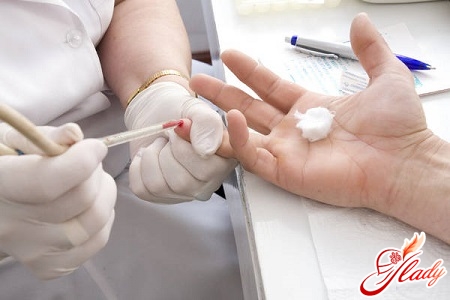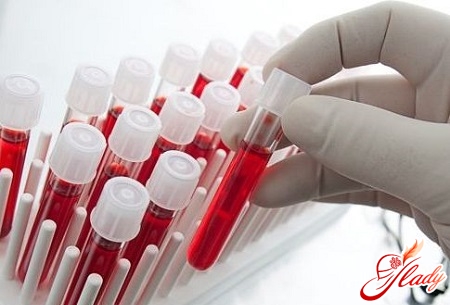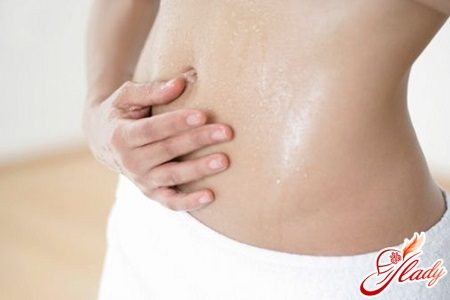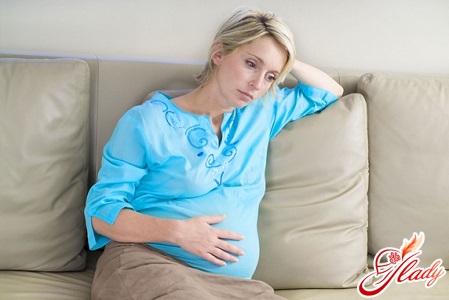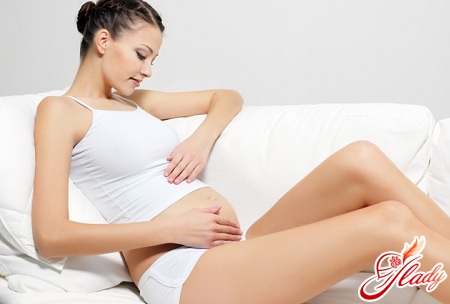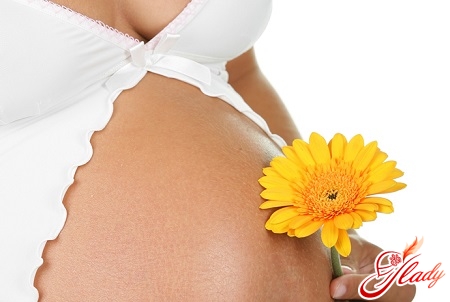
In the conditions of our civilization it is very difficultkeep your health. And when it comes to pregnancy, the health problem is most acute. As we recall, the 20th century was called the century of cardiovascular disease, but the 21st century, according to the forecasts of the World Health Organization, has already been called the century of allergy. According to the latest estimates, 20% of the world's population suffers from allergies, and in places with an unfavorable environment, the scale does increase to 50%. As for Russia, in the aggregate, 15-35% of people suffer from allergies (depending on the region). If we consider the last 30 years, then we can safely say that every 8-9 years the number of registered cases of the disease grows 2-3 times. There are a lot of reasons: they can be attributed to the deteriorating ecology, and stresses, and the development of industry that neglects environmental measures, and taking medications without consulting doctors, and poor nutrition, and using cosmetics (for the quality of which no one is following), and of course the appearance of new allergens in connection with the invention of new means for household disinfection. Allergy is a manifestation of the defensive reaction of the body, in the process of which its own tissues are damaged. This phenomenon in medical terminology is called OAA - acute allergic disease. Statistics confirm that 5-25% of allergies occur in pregnant women. Over the past two decades, the number of such cases has increased 6-fold. The most susceptible to allergies are women aged 18 to 24 years.
How does an allergy occur?
Let's consider three stages of the mechanism of allergic reactions:
- The first exposure to the allergen in the body. As it can act as animal wool, pollen of plants, cosmetics and food products (any pathogens of allergies). Immune cells of the body recognize foreign substances and begin to produce antibodies. These antibodies are fixed on the walls of mast cells located under epithelial tissues or under mucous membranes. In this state, antibodies can exist for more than a year, waiting for repeated contact with the pathogen.
- At the second stage, when the allergen again falls into theorganism, antibodies are bound to the surface of the mast cell, the mechanism of "opening" of such cells is triggered, anti-inflammatory hormones (serotonin, histamine, etc.) are released from them. They cause the first symptoms of an allergy.
- In the third stage, anti-inflammatory hormonesexpand the vessels and increase the permeability of tissues, so inflammation and swelling occur. If the allergen gets into the blood (this is considered a serious case), then anaphylactic shock is possible - a sharp drop in blood pressure as a result of a strong vasodilation.
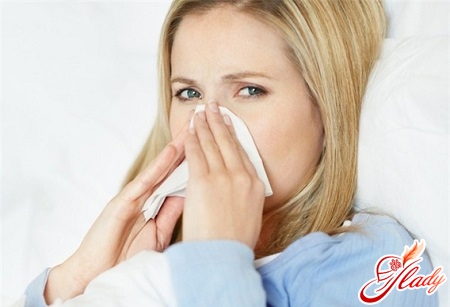
Distinguish between light and heavy OAS
Light OAS: the main symptoms
- Localized urticaria - formed rounded blisters with a pale center and raised edges, accompanied by pronounced itching.
- Allergic conjunctivitis - edema is formed andhyperemia (redness), the vessels on the white of the eye are clearly visible, it is all accompanied by itching, lacrimation, swelling of the eyelids, photophobia and narrowing of the eye gap.
- Allergic rhinitis - obstructed nasal breathing, swollen nasal mucosa, a mucus secret, a burning sensation in the pharynx and a constant sneezing.
Heavy OAS: the main symptoms
- Edema Quincke - swelling of the skin, mucous membranes,subcutaneous tissue. Most often, edema develops in the cheeks, lips, forehead, eyelids, scalp, brushes, scrotum, feet. Also, swelling captures joints and mucous internal organs. For example, the laryngeal edema can be determined by coughing, sensation of suffocation, by the hoarseness of the voice. A swelling of the gastrointestinal tract accompanies abdominal pain, vomiting, or nausea.
- Anaphylactic shock - lowering of arterialpressure (hypotension), deafness, breathing disorder, abdominal pain, itching, urticaria and even loss of consciousness within an hour after interaction with the allergen.
Among these OAS in pregnant women are commonurticaria, Quincke's edema and allergic rhinitis. When an allergy occurs in a mother, the child does not suffer from allergosis, because antigens that fight with an allergy do not get to the fetus through the placenta. Nevertheless, the baby, who is in the womb, is uncomfortable because of the mother's general condition. In addition, drugs for the treatment of allergies have a detrimental effect on the fetus, since they may well cause a decrease in uteroplacental blood flow, which ensures the life of the fetus. 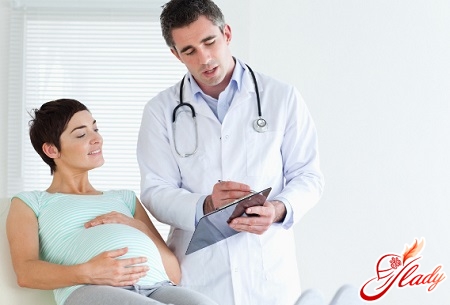
How to cure an allergy
The main objective is a fast and safeelimination of allergic symptoms in pregnant women without negative impact on the child. It is known that the reaction to any drug directly depends on the physiological state of a person. And pregnancy in this case is a special condition. The following facts complicate the treatment of OAS in pregnant women: 60-80% of women take constant and other medications, and 40-45% have internal diseases. The average pregnant woman for 9 months takes tablets of 4 kinds and more, not taking into account microelements, vitamins and dietary supplements. All these means inevitably affect the fetus, especially in cases of self-medication. It is worth remembering that most antihistamines against allergies are categorically contraindicated in the treatment of allergies during pregnancy. For example, Diphenhydramine (the most common anti-allergic drug) can cause uterine contractions in late pregnancy, Terfenadine helps reduce the weight of the newborn, Astemizole is toxic to the fetus. Claritin, Suprastin, Cetirizine, Feksadin, Tavegil, Pipolphen - all these drugs against OAA should be taken for vital indications, with the permission of the attending physician, otherwise the consequences can be deplorable. As soon as the first manifestations of an allergic reaction appear, you should immediately contact an allergist. At the initial stages of the disease, you can do without taking medications inside, because do not forget that there is a cream that helps cope with swelling and itching. And this is much better than pills. At the first manifestation of allergosis, one should analyze the nutrition and all the actions performed the day before to reveal the cause of the onset of OA. If you can not identify the allergen yourself, do not despair, science does not stand still, any allergist can help you. You will be given a skin test: they will inject solutions of potential (more common) allergens under the skin (extracts of pollen of trees, herbs, poison of insects, epidermis of animals, medicines, food). If you have an allergy to one of these substances, then at the injection site, edema develops. What are the means against the OAK? Finding cures for allergies in pregnancy is not so easy. First, consult a doctor. No one, except him, will be able to prescribe a medicine for allergy during pregnancy that does not threaten the fetus. But if the allergy has caught you by surprise and there is no possibility of visiting the doctor, then, guided by the data on the drugs used against the OAA, you may be able to choose the appropriate method of treatment. One of the less dangerous drugs is allertec (citerisin). It can be taken in the 2nd and 3rd trimester of pregnancy. Suprastin (chlorpyrramidine), Tavegil (klemastin), Pipolphen (piperacillin), Claritin (loratadine) - all these preparations are unconditionally harmful to the fetus. They should be taken only for vital indications if the effect of therapy significantly exceeds the risk for the fetus, simply if the allergic state of the mother threatens the child more than the drug itself. But in any case, the doctor must determine this threat in each specific case. If the allergy does not cause you to feel bad, you can do without drugs using a cream. For example, Fenistil cream or La Cree. These drugs will help you get rid of itching, swelling on the skin. The cream is a more gentle means in the fight against allergies when it comes to the period of pregnancy. 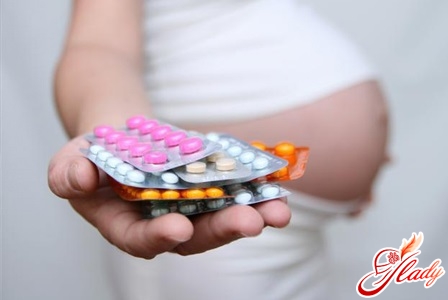
Prevention is the best way to prevent disease
Preventive measures includerestriction in food of highly allergenic products (for each individually), limiting contact with household chemicals, cosmetics, etc. During pregnancy, you should keep the house clean. Daily do wet cleaning, every few days to vacuum carpets, furniture, knock out pillows, change bed linens. It is inadmissible to smoke during pregnancy (both active and passive). This factor adversely affects not only the growth of the child, its development, the formation of internal organs, but also increases the likelihood of allergies, both in the mother during pregnancy and in the baby who was born. All doctors of the world against artificial feeding, they tirelessly repeat that newborns need to be fed with breast milk! This is the most useful and hypoallergenic product. Pregnancy is a special condition of a woman. That's why a woman should think during this period not only about herself, but about the baby. Observe all the recommendations of doctors, watch your health, do not take medicines without doctor's prescriptions, because now you have a new life in your hands!




